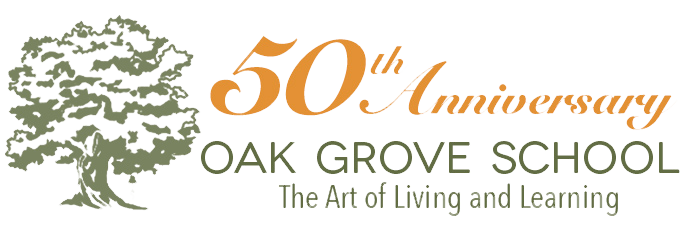Radical Downtime
I was lying in the shade on the Main House lawn looking up at the sky. The weather was warm, not hot. I could see the gentle breeze move through the trees. Nearby, other staff and faculty members were spread out around the lawn, gazebo, and pathways. Some were seated on rocks, others lay on benches, or sat upright facing the mountains. Together, but alone, we were engaged in “radical downtime,” something many of our teachers practice with our students throughout the school day.
This was during our weekly faculty meeting, and the amount of time was far too short. Radical downtime is not mindfulness or meditation. The idea is to be without external stimuli – books, electronics, paper, instrument, conversation – to be with oneself without a purpose. Daydreaming, thinking, not thinking, allowing the mind to wander, closing the eyes, napping is fine if that is what is needed.
I remember reading once that for a person who gets the appropriate amount of sleep, it should take 15-20 minutes to naturally fall asleep after closing one’s eyes. The mind will cycle through the day’s interactions, projects, forgotten to-dos, but once the mind slows down, sleep will prevail. I wonder how many people allow that amount of time to drift off. My own habit is to read until I realize I am dreaming with my eyes closed and the book has fallen out of my hand. That’s when I turn off the lights and fall asleep within seconds.
Research around radical downtime suggests that people who practice this activity have improved memory, increased creativity, decreased stress, and experience fewer sleep disturbances. When we stop and do “nothing,” especially in this hyper-technological world full of distractions, we increase the possibility of becoming more aware of our emotions, noticing body sensations and what they may mean to us. For children, having time to process what is happening inside themselves and learning how to be content with themselves without external provocation is an essential aspect of our purpose as a school.
“It is very important to go out alone, to sit under a tree – not with a book, not with a companion, but by yourself – and observe the falling of a leaf, hear the lapping of the water, the fisherman’s song, watch the flight of a bird, and of your own thoughts as they chase each other across the space of your mind. If you are able to be alone and watch these things, then you will discover extraordinary riches which no government can tax, no human agency can corrupt, and which can never be destroyed.”
— J. Krishnamurti, “Think on These Things”









